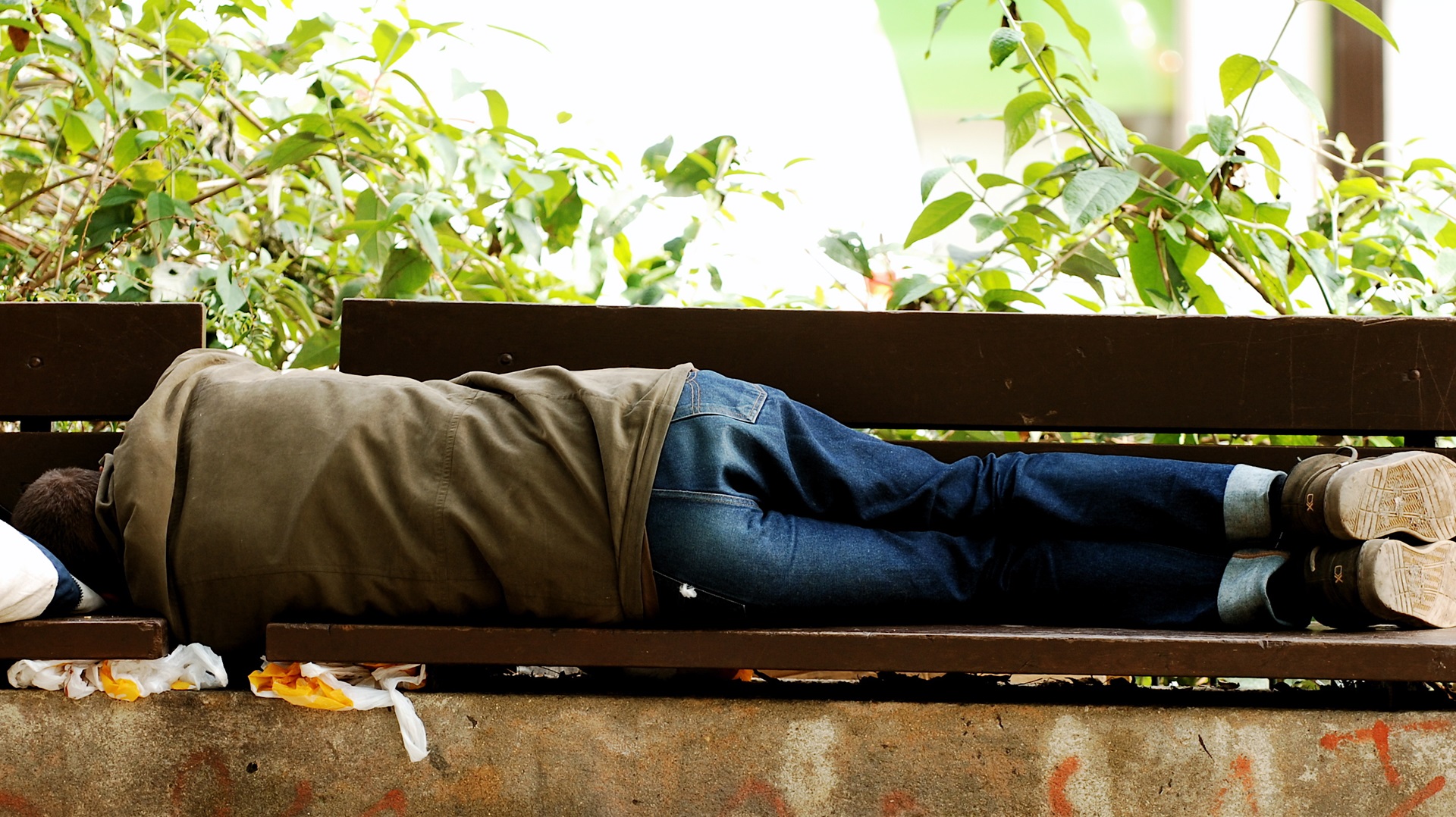“The Vagrancy Act turns 200 years old in this coming year, and we call on the government to end this cruelty. It is vital that any new laws do not simply re-introduce the criminalisation of homelessness and that the government focus instead on measures to end homelessness.”
In total, 35 of England and Wales’ 43 police forces responded to Generation Rent’s freedom of information requests.
That uncovered at least 4,200 arrests under the Vagrancy Act between 2018 and 2022.
Of these the majority of people arrested, 3,274, were white, but 327, 8%, were Black.
Generation Rent found people who are Black are 68% more likely than people who are white to be arrested under the Vagrancy Act.
Generation Rent’s research also revealed a gradual decline in the use of the act.
Advertising helps fund Big Issue’s mission to end poverty
The act was used 443 times in 2022 – just a third of the 1,213 arrests recorded in 2018.
The Vagrancy Act was originally introduced in 1824 to prevent soldiers returning from the Napoleonic Wars from sleeping rough or begging on the streets.
The Westminster government first announced it would axe the act in 2021 and repealed it as part of last year’s Police, Crime, Sentencing and Courts Act.
The law remains in force until it is replaced. The government plans to finally oust it from the statute book in the Criminal Justice Bill, which is currently making it’s way through parliament.
A government response to a consultation on the Vagrancy Act replacement found the act should be “repealed in full” but argued “without some replacement legislation it would lead to a gap in police powers to deal effectively with begging”.
But the move is proving controversial. Politicians, frontline homeless organisations and campaigners have argued that the police already have sufficient powers to deal with people who are rough sleeping.
Advertising helps fund Big Issue’s mission to end poverty
Crisis chief executive Matt Downie previously told the Big Issue the new powers are “not needed” and will cause “further harm on the streets”.
Alicia Walker, head of policy, research and campaigns at Centrepoint, described the plans as “unworkable”.
“Criminal law cannot prevent rough sleeping because the causes of rough sleeping are generally not criminal in nature,” said Walker.
“Reading the government’s response, it seems as though there was unanimous agreement with this basic premise, so it defies logic that ministers plan to press ahead with a Criminal Justice Bill that criminalises rough sleepers in such a dangerously open-ended way. It is hard to see the purpose of this.”
“Recent government investment has been significant – but it is battling against the wider system failure of the housing crisis which criminalisation only risks compounding. The only way to prevent that failure is a serious, cross-government plan to end homelessness defined by supporting people, not punishing them.
The new bill, which outlaws ‘nuisance rough sleeping’, risks repeating the existing act’s mistakes and could even see rough sleepers face the threat of a fine or prison sentence for bedding down in doorways, Liberal Democrat MP Layla Moran told the Big Issue.
Advertising helps fund Big Issue’s mission to end poverty
Generation Rent’s research comes after several incidents where rough sleepers’ treatment on the streets has been in the spotlight.
That includes rough sleepers having their tents destroyed in Camden, a man being soaked in water and bleach outside a McDonald’s restaurant in London and a homeless man set on fire in an underpass in Birmingham in November.
Do you have a story to tell or opinions to share about this? We want to hear from you. Get in touch and tell us more.









